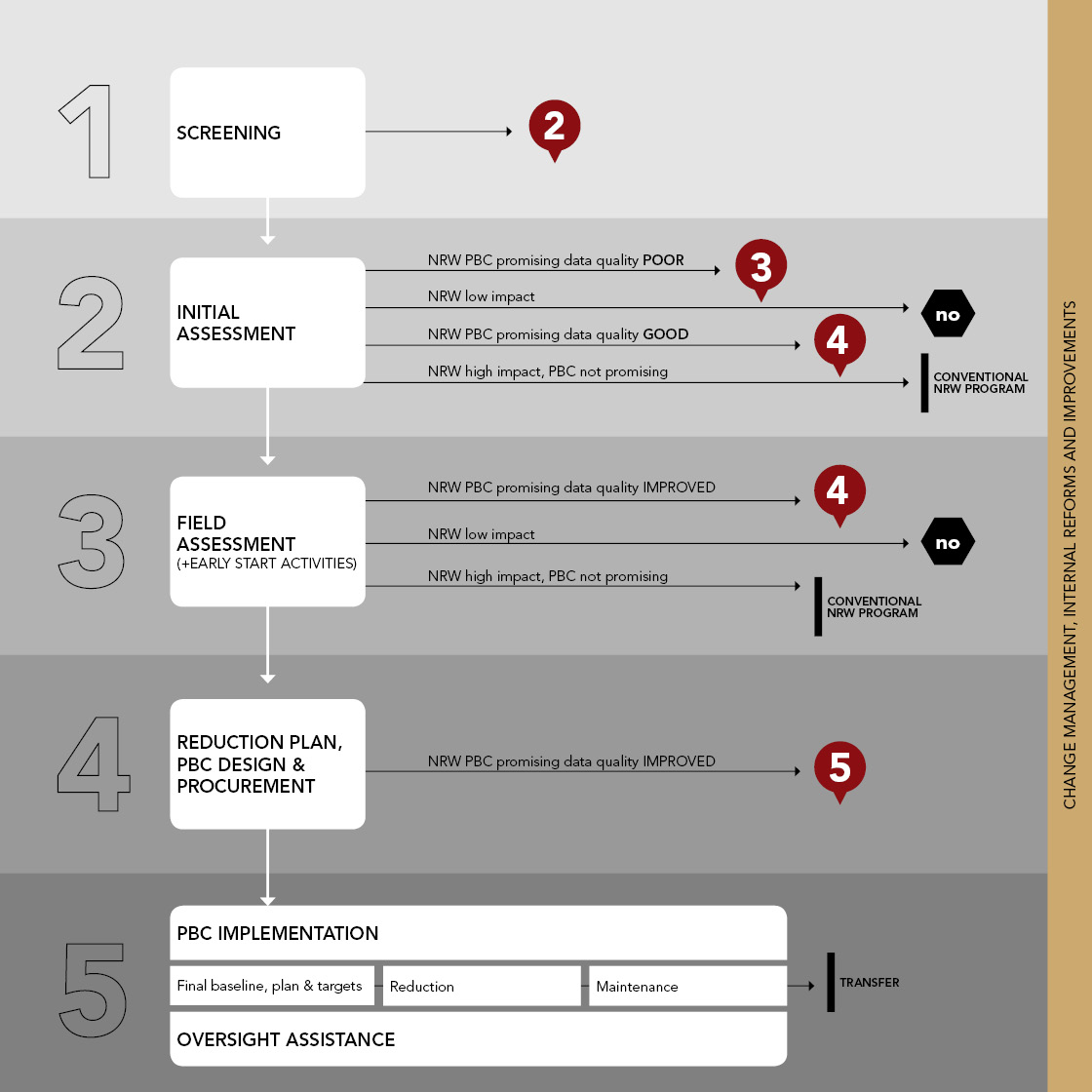Contracting Tools for Non-Revenue Water Reduction
Benefits of Reducing Non-Revenue Water
- it can significantly improve cash flow and financial viability of utilities.
- It enables more people to have access to water connections, and at a higher quality of service, with existing resources.
- it reduces greenhouse gas emissions per unit of water delivered, which promotes climate resilience.
Key Sources of Non-Revenue Water
Farley Water Consulting: Water Loss Management Resources
An archive of reports and case studies on a wide variety of NRW management topics from internationally prominent sources.
Infrastructure Toolkit
The development of sustainable infrastructure, whether through public-private partnerships (PPPs) or public procurement, requires a wide range of considerations and decisions to be taken into account. These include understanding the demand for services, setting a price that is affordable for both consumers and governments, and assessing and mitigating the environmental and social impacts of projects. In the case of PPPs, these decisions need to be made while also meeting the expectations of investors, developers, and financiers.
Toolkit on Market-Based Approaches in Private Sector Provision of Bus Services
Toolkit on Market-Based Approaches in Private Sector Provision of Bus Services, PPIAF
PPP Structuring Toolkit
The Toolkit is for use by PPP practitioners across India in both the public and private sectors.
A Framework for Disclosure in PPP Projects
The framework provides a systematic structure for pro-actively disclosing information regarding public-private partnership (PPP) projects. It can help client countries create effective policies and practices for public disclosure of PPP transactions.
The tool was developed at the request of the G-20 and endorsed by them in 2015. A database on disclosure practices in various countries was also developed.
Allocating Risks in PPP Contracts
This guidance tool has been developed for governments that wish to enhance the viability of their PPP infrastructure projects. This tool deals with the appropriate allocation of risks between the public and private parties participating in the project, and is designed to help governments build a pipeline of viable PPP projects.




